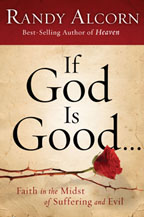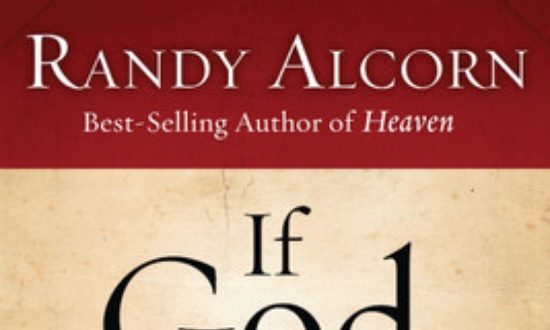A crisis is an immediate problem with very high stakes that draws our total attention. It may be a terrible accident, the death of a loved one, a son in jail, a church scandal, a daughter who has run away.
Some crises turn out well. The loved one recovers from the accident, the son comes to Christ, the daughter comes home. We may clearly see God’s hand in allowing the whole ordeal to happen.
Other times the crisis ends in apparent tragedy. I stress the word apparent. Joseph’s brother sold him into slavery, and he became a prisoner in Egypt. But years later Joseph could say to his brothers, “You intended to harm me, but God intended it for good to accomplish what is now being done, the saving of many lives” (Genesis 50:20). The moral? If we spell God with a capital “G” we will always spell tragedy with a small “t.”
The prophet Habakkuk understood that there is a joy that transcends all circumstances. Here is a man in a society heavily dependent upon livestock producing, trees bearing fruit, and crops yielding crops, yet in the midst of his nation’s darkest hour he cried out:
Though the fig tree does not bud
And there are no grapes on the vines,
Though the olive crop fails
And the fields produce no food,
Though there are no sheep in the pen
And no cattle in the stalls,
Yet I will rejoice in the Lord
I will be joyful in God my Savior.
The Sovereign Lord is my strength;
He makes my feet like the feet of a deer,
He enables me to go on the heights. (Habakkuk 3:17-19)
Few people in all of history have experienced the stress of Jeremiah. His book of Lamentations portrays a vivid and haunting picture of the destruction of Jerusalem and the suffering of her people. After sixty-four of the bleakest verses in God’s Word, describing the worst circumstances imaginable, Jeremiah states the obvious: “My soul is downcast within me” (Lamentations 3:20). But he follows with an amazing response that pulls himself and his reader out of the very depths of hell:
Yet this I call to mind
And therefore I have hope:
Because of the Lord’s great love we are not consumed,
For his compassions never fail.
They are new every morning;
Great is your faithfulness. (Lamentations 3:22-23)
Is this kind of perspective in the midst of tragedy restricted to men in Bible times? No! Many people today have exactly the same experience.
Joni Earekson Tada’s swimming accident paralyzed her from the neck down. But if you’ve read her books, seen her drawings, heard her albums, then you know the beauty of Joni’s life. I’ve talked with her briefly a few times and I’ve seen Christ in her. She has not just “made the best” of a bad situation. She has flourished in what God knew was for her the best situation.
Several years ago, Hilma called us: “I’m in a wheelchair now, but God has given me a greater ministry than ever. I pray, I write letters of encouragement, I use the phone to share Christ’s love.”
 You probably know a dozen other people in whose lives God has used tragedy to produce beauty. None of us seek tragedy or welcome it. But I encourage you to resolve now that should apparent tragedy strike-or if it has already-you will let go of your limited perspective and let God prove to you that His promises are true:
You probably know a dozen other people in whose lives God has used tragedy to produce beauty. None of us seek tragedy or welcome it. But I encourage you to resolve now that should apparent tragedy strike-or if it has already-you will let go of your limited perspective and let God prove to you that His promises are true:
Never will I leave you;
Never will I forsake you. (Hebrews 13:5)
Perhaps you’re familiar with the background of the great hymn, “It is Well with My Soul.” The songwriter had just lost his wife and children at sea. The pain was great, but God’s grace rose to the occasion. Despite tragedy, he could say without pretense, “It is well with my soul.” Only God can perform such a miracle of grace. And only we can stand in the way of his doing so.
For more information on this subject, see Randy Alcorn’s book If God Is Good …





